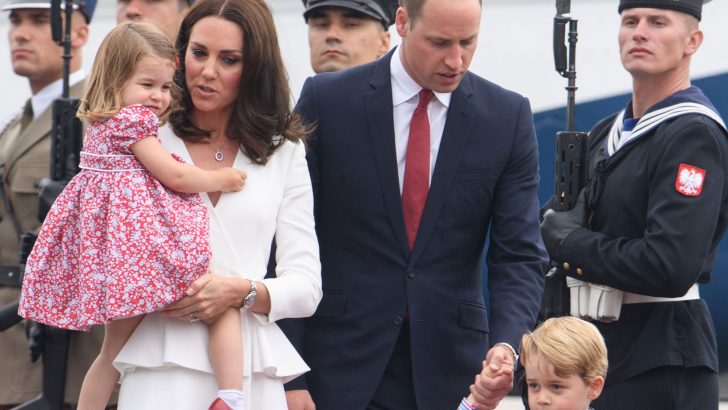The Duke and Duchess of Cambridge are expecting their third child. I was glad to see that even in the hardened atmosphere of news outlets around the world, the impending arrival of a new baby in the royal household is still portrayed as a ‘good news’ story.
But it also got me thinking about what happens when another girl or woman finds out that she too is expecting, but the circumstances are more difficult. What happens when a woman is not married or in a relationship with the child’s father? When she is working? When she has other plans?
For years, women have been indoctrinated by a feminist ideology that tells them that traditional feminine qualities and instincts are bad and indicative of a repressive patriarchal culture. Vulnerability is bad, therefore motherhood and pregnancy are bad because you allow yourself to be vulnerable – which is to say weak.
What does this attitude tell young women and girls as they contemplate their futures? It tells them that their fertility is a problem that needs to be treated and managed, and that pregnancy and babies are something to be avoided at all costs until you’ve made it in your career and you’re good and ready (without any consideration of the biological reality of women’s fertility).
And ultimately, if you do happen to become pregnant (which genuinely seems to come as a surprise to many women nowadays, such has been the success in separating sex and procreation), that you can (and should) ‘take care of it’. Because of course it is irresponsible to have a child before you’re absolutely ready and the child is really, really ‘wanted’.
Even then the lecturing doesn’t stop. The news of the Duchess of Cambridge’s pregnancy follows shortly after she and her husband were written an open letter by a group called ‘Having Kids’, suggesting that they shouldn’t have any more children as it would be selfish to do so, given the carbon footprint that the next little Windsor might leave on the world. When having a baby becomes an environmental offence, it certainly seems that motherhood is no longer sacred.
As Catholics, we celebrated last week the birthday of Mary, Mother of God. While reflecting on her motherhood, I came across a video lecture by YouTube sensation Prof. Jordan Peterson about the importance of the portrayal of Mary in Western civilisation, even in a post-Christian era. Although not Catholic, he describes the image of the Madonna and Child, the beautiful young woman and her baby, as being transcendent and eternal: an archetype.
Familiar
That image is so familiar to us that perhaps we risk overlooking its significance. Although a Christian icon, it transcends culture and time and even religion. What it depicts is at the heart of the most basic, shared experience of every human being on this Earth: that we all were born into the world through a woman.
The image of a mother and her child expresses the fundamental reality that any human society must give a special place of respect to mothers and babies. When the relationship of mother and child is not protected, everything falls apart.
The bond between mother and infant is the cornerstone of all human life, the foundation of civilisation. When we fail to protect this sacred relationship, we undermine our own society.
An attack on this – the very first inter-personal relationship – is an attack on the beginnings of life: it is fundamentally anti-human.
The relationship between mother and child has never been more under threat in this country, given that our Taoiseach has announced that he will run a referendum on the Eighth Amendment next year.
Most people can see the terrible injustice and violence that abortion does to a baby; many will acknowledge the suffering that it entails for many women who choose it; but what does it mean for our society, what does it do to the idea of motherhood?
The partnership in humanity that happens during pregnancy between the woman and her baby is essential, not only to the individuals involved but also to society as a whole: all future generations depend on it. For this reason, when this partnership is threatened, it is an attack on society.
Abortion fragments the image of mother and child and in doing so, motherhood is devalued. This has devastating consequences for our society: young women begin to feel that motherhood is a threat to their independence, success and value as a person.
Advocates of abortion, even those who concede that the baby in the womb is a person, will nonetheless say that a woman’s right to choose trumps any and every right her child may have. They say that the presence of a baby in his mother’s womb is a violation of a woman’s bodily integrity. This is the saddest argument of all. It pits a woman against her baby and tears the beautiful image of mother and child asunder, turning the child into an aggressor who threatens the mother and thwarts her plans.
Perspective
Of course, if this is your perspective, you might well believe in a woman’s right to choose. We only have to look to our neighbours to see where this leads: one in every five babies in Britain loses his or her life to ‘choice’.
But a child in the womb is not an aggressor, the child does not violate anything – is not capable of doing so, in his or her innocence. The veil that feminists have drawn in front of their eyes prevents them from seeing the child for what he or she really is: an innocent baby, a person at the very beginning of his or her life, listening to his mother’s voice, waiting for her embrace.
The question now is this: do we want to strip motherhood of all privilege and respect in society, dismantling the image of mother and child and turning one against the other? Or rather, are we willing to protect the status of motherhood in our country, to defend the relationship between a mother and her baby and to secure the lives of all innocent children before birth? Can’t we work together to make our society one in which every new life is welcomed, not just royal ones?








 Maria Steen
Maria Steen The Duke and Duchess of Cambridge with their two children.
The Duke and Duchess of Cambridge with their two children. 